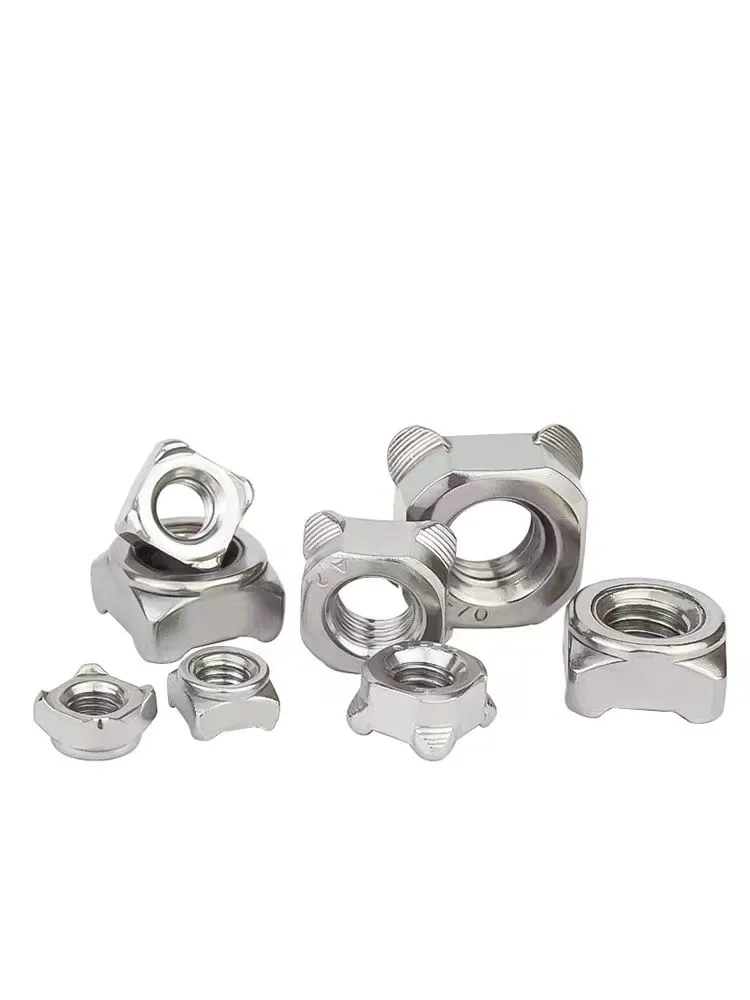

Choosing the Right Washer for 1/4 Inch Bolts and Their Applications
Kas . 08, 2024 07:22 Back to list
Choosing the Right Washer for 1/4 Inch Bolts and Their Applications
Understanding Washers for 1/4 Bolts A Comprehensive Guide
Washers are unassuming pieces of hardware that play a crucial role in the reliability and stability of various mechanical structures. When discussing washers specifically designed for 1/4 inch bolts, there are several key considerations, including material choices, types of washers, and their applications. This article aims to provide an in-depth look at washers for 1/4 bolts, helping you to make informed decisions for your projects.
What Are Washers?
A washer is a thin, flat piece of metal or other material that is used to distribute the load of a threaded fastener, such as a bolt or nut. Proper use of washers can help prevent damage to the surface being fastened, reduce wear and tear, and even prevent loosening due to vibrations. When dealing with 1/4 bolts, choosing the right washer is essential for ensuring a secure and long-lasting connection.
Types of Washers
There are several types of washers commonly used with 1/4 bolts
1. Flat Washers The most common type, flat washers are simple disks with a central hole that fits onto the bolt. They provide a smooth bearing surface and reduce the likelihood of damage to the material being fastened.
2. Lock Washers These washers are designed to prevent the bolt from loosening due to vibrations. There are several types, including split lock washers and toothed lock washers. Split lock washers have a helix shape that bites into the surface, creating friction, while toothed lock washers use pointed teeth to grip the surface better.
3. Belleville Washers Also known as conical washers, Belleville washers are slightly curved so that they can provide a spring-like effect. This helps maintain tension on the bolt, making them particularly effective in applications subject to dynamic loads.
4. Fender Washers These are larger in diameter than standard flat washers, providing a greater surface area. This is beneficial when working with softer materials, as they help prevent pull-through.
5. Rubber Washers Often used in plumbing and electrical applications, rubber washers provide an additional layer of sealing, preventing leaks and helping with vibration dampening.
washer for 1 4 bolt

Material Choices
When selecting washers for 1/4 bolts, the material is just as important as the type. Several materials are commonly used, including
- Steel The most common choice, steel washers are strong and durable. They can be plated or coated for corrosion resistance, and they are suitable for general-purpose applications.
- Stainless Steel Offering higher corrosion resistance, stainless steel washers are ideal for marine environments or applications where exposure to moisture is a concern.
- Plastic Nylon or other plastic washers can be used in applications where electrification is a risk, as they do not conduct electricity. They are also resistant to corrosion.
- Brass Brass washers provide excellent corrosion resistance and a pleasing aesthetic, making them common in decorative applications or fixtures.
Applications of Washers
Washers for 1/4 bolts are used in a wide variety of applications, ranging from automotive to construction, electronics, and home improvement projects. They serve an essential role in joining materials securely and effectively. For instance, in automotive applications, they help secure engines and suspensions. In construction, they're used in framing and decking. In electronics, they maintain connections that are subject to vibration or thermal expansion.
Conclusion
Understanding the various types of washers available for 1/4 bolts is crucial for ensuring the integrity and longevity of your projects. By selecting the appropriate type and material, you can enhance performance, reduce wear and tear, and prevent issues related to vibration and loosening. Whether you are working on a DIY project or a professional assembly, taking the time to choose the right washer will pay off in the long run. Remember, while small in size, the right washer can make a significant difference in the durability and safety of your work.
Latest news
-
Premium Self Tapping Metal Screws: Strong & Easy Install
NewsAug.02,2025
-
Premium Fasteners Manufacturer | AI-Driven Solutions
NewsAug.01,2025
-
Hot Dip Galvanized Bolts - Hebei Longze | High Strength, Corrosion Resistance
NewsAug.01,2025
-
High-Strength Hot Dip Galvanized Bolts - LongZe | Corrosion Resistance, Custom Sizes
NewsAug.01,2025
-
Best Self Tapping Screws for Drywall - Fast & Secure Installation
NewsJul.31,2025
-
High-Strength Hot Dip Galvanized Bolts-Hebei Longze|Corrosion Resistance&Customization
NewsJul.31,2025

